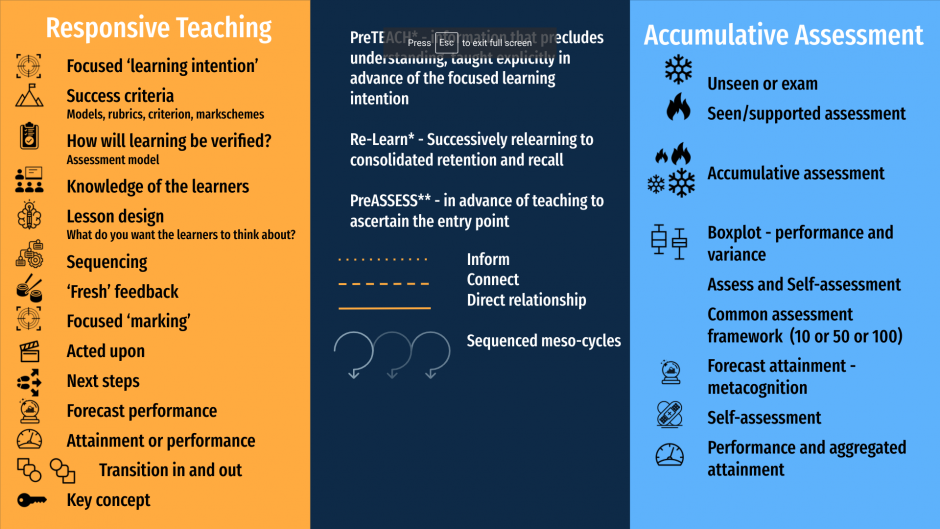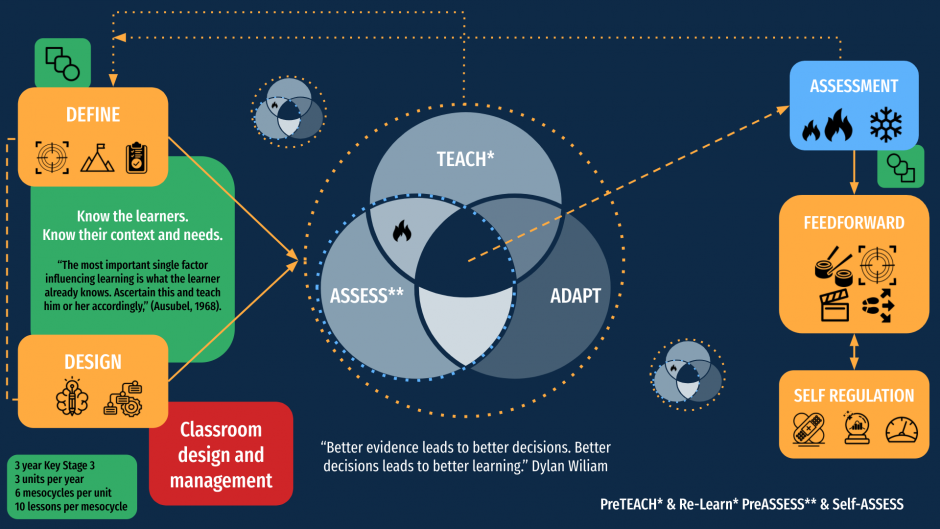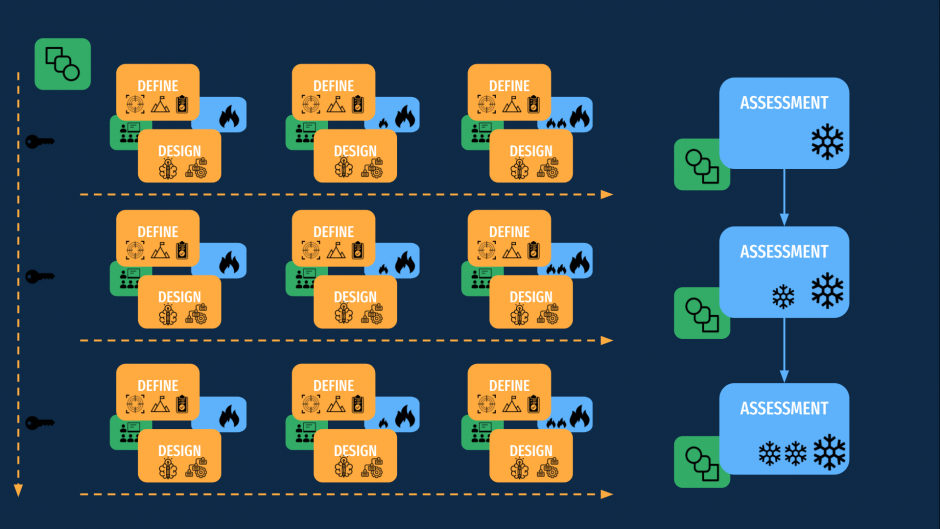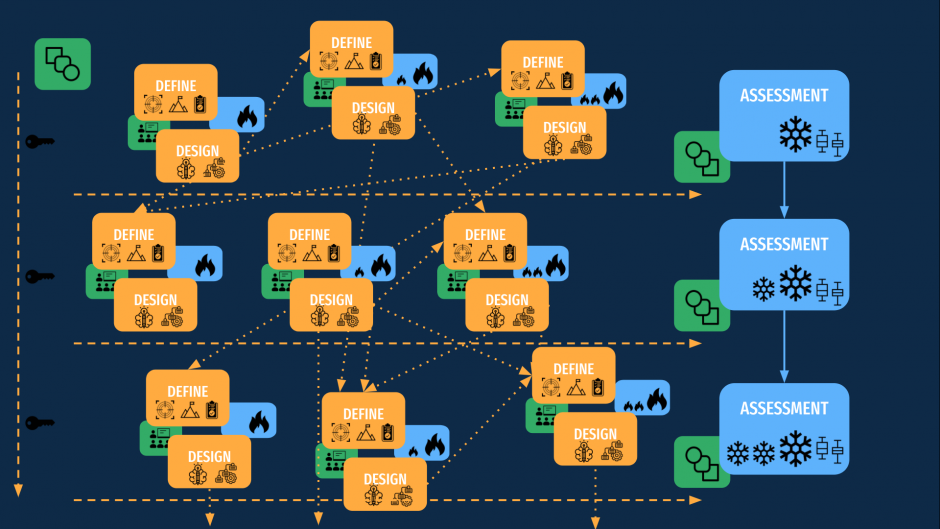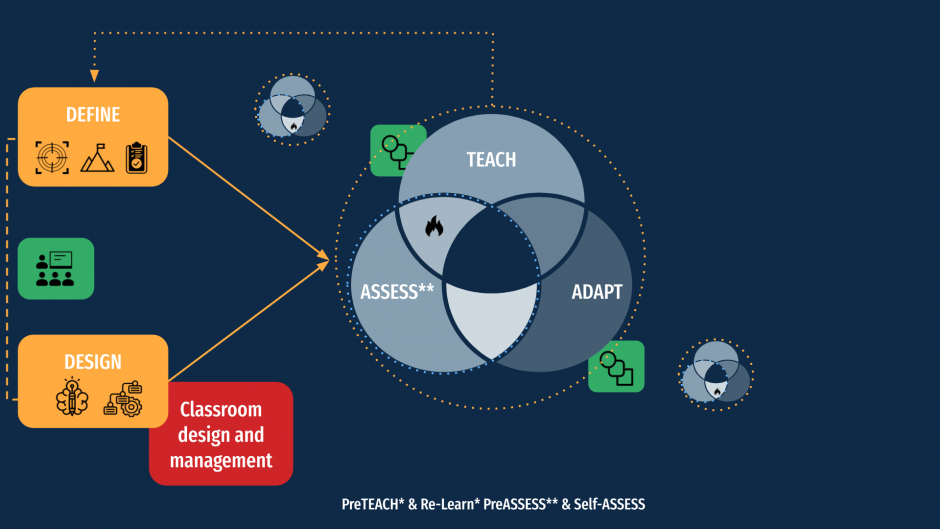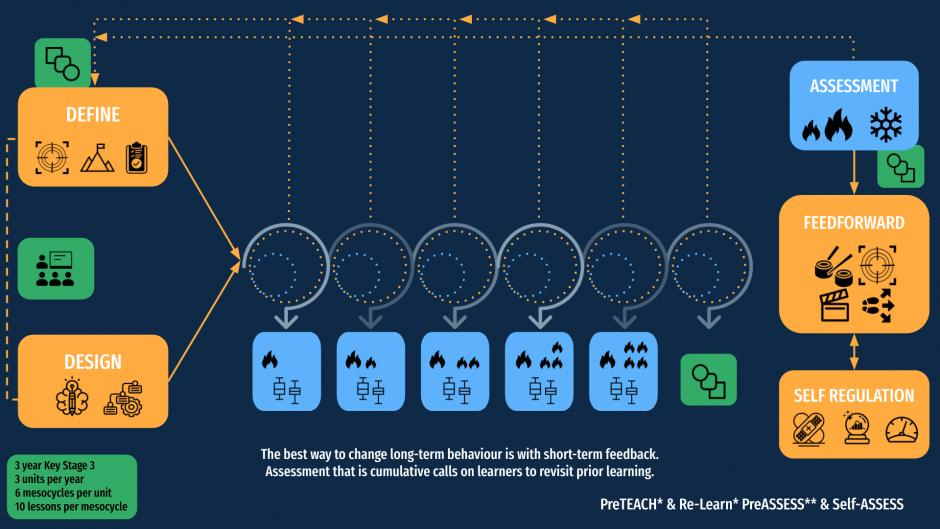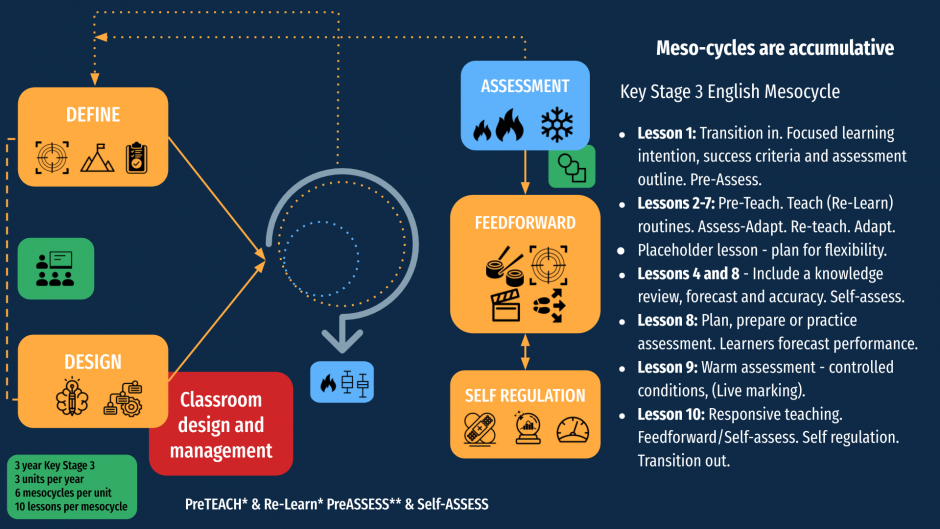So here it is, the first final draft. A model of sequenced teaching-instruction as “teach-assess-adapt” (accepting that there is more to teaching than that). The introduction of meso-cycles, along side macro (schemes of learning) and micro cycles (lesson(s)) and the differentiation of warm (for learning and practice) and cold (for verification of learning) assessments. Lastly, a reliance on routined, Successive Learning and Responsive Teaching.
- Terms of reference
- Teaching-Instruction Model (Classroom design and management would need to be a second series)
- 3 year curriculum sequence, it could be x years, here, each cluster is a marco cycle or term in core subjects.
- Curriculum sequence with key concepts and links (box plots added).
- A micro teaching-instruction sequence
- An expanded teaching-instruction meso-cycle
- A teaching-instruction meso-cycle
Teaching-Instruction Model
It is a model organised with the complexities and unpredictability of teaching in mind – a model that views classrooms and learning spaces as complex adaptive systems, within that of a school and of the education system itself. The simplicity of “teach-assess-adapt” is purposeful, in that “the surface complexity is the result of underlying simplicity.” A simplicity far from simple to achieve. The reliance on routines a direct effect to steer and promote the emergent patterns of behaviour for learning and self-regulation.
The model then takes a series of backward steps. From micro, through meso, to macro cycles. For core subjects, often termly, for foundation subjects, less so, even annually. Here it is recognised that curriculum parameters are set at the school level (curriculum allocation and group sizes for example) and Assessment, Marking and Feedback policies and data collection cycles, with curriculum leaders often contributing to exam board decisions, ‘Success criteria and Assessments,’ and leading on the definition of Knowledge and ‘Focused ‘learning intention,’ and “Design.”
As noted, “Assessment” is most often centralised (what and when). Within it whole school policy, a local common assessment framework for teaching (for tracking and monitoring) is advocated within departments and teachers’ individual classrooms. The framework is designed for two reasons. To verify learning that informs teaching-instruction and second, to review the quality of the assessment and evidence insight.
Lastly, within the mesocycle, warm assessment and focused feedback/feedforward informs teaching and learner self-regulation – as well as inform the learning plan itself.
Is the model finished?
No – I doubt it. Theoretically, I think it is ambitious to think it ever will ‘finished.’
If I get time, I will create a workflow document for teachers planning their next macro cycle, looking to adopt a meso cycle approach.

